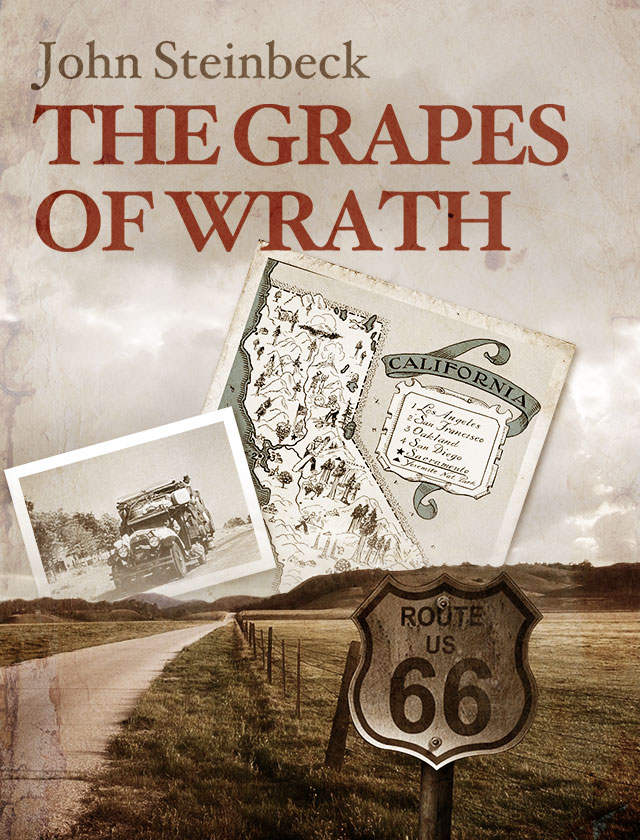The Grapes of Wrath
by John Steinbeck
Key Quotes
1. Casy picked up one of the cottontails and held it in his hand. “You sharin’ with us, Muley Graves?”
Muley fidgeted in embarrassment. “I ain’t got no choice in the matter.” He stopped on the ungracious sound of his words. “That ain’t like I mean it. That ain’t. I mean”—he stumbled—“what I mean, if a fella’s got somepin to eat an’ another fella’s hungry—why, the first fella ain’t got no choice. I mean, s’pose I pick up my rabbits an’ go off somewheres an’ eat ’em. See?”
“I see,” said Casy. “I can see that. Muley sees somepin there, Tom. Muley’s got a-holt of somepin, an’ it’s too big for him, an’ it’s too big for me.”
The Oklahoma farmer knows something intuitively—and unarguably—that a society running on unchecked capitalism does not accept. The Oklahoma bankers and the California corporate farmers do not abide by this simple moral philosophy—that it is untenable to keep everything for yourself when others have nothing. It is not human. Embracing a philosophy so counter to what is human and necessary is what causes all the suffering in the first place. Muley humbly articulates this from a place of personal common sense. Casy, a philosopher, is immediately aware of the broader significance of Muley’s words, recognizing the greater wisdom in the farmer’s simple knowing. Ultimately, Casy incorporates this knowledge into his philosophy of a collective, transcendental soul.
2. “If he needs a million acres to make him feel rich, seems to me he needs it 'cause he feels awful poor inside himself, and if he's poor in hisself, there ain't no million acres gonna make him feel rich, an' maybe he's disappointed that nothin' he can do'll make him feel rich—not rich like Mis' Wilson was when she give her tent when Grampa died. I ain't tryin' to preach no...
Sign up to continue reading Key Quotes >